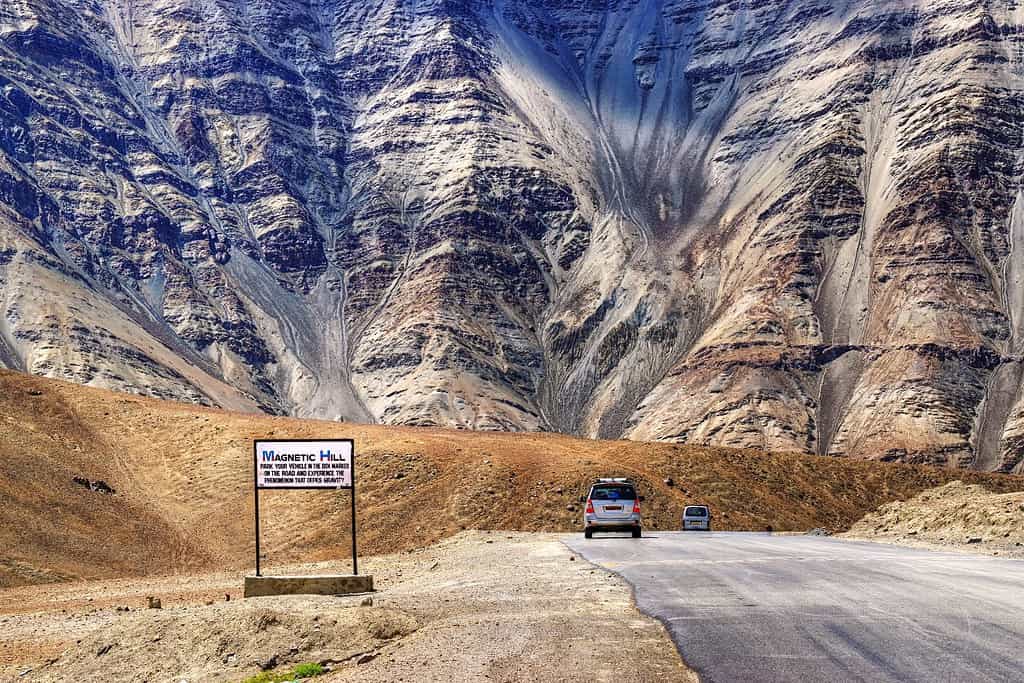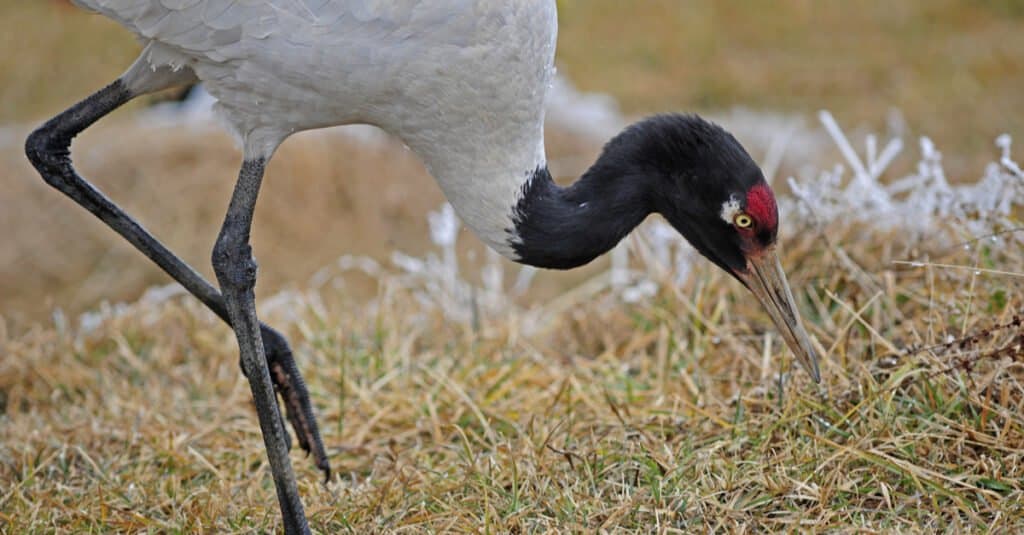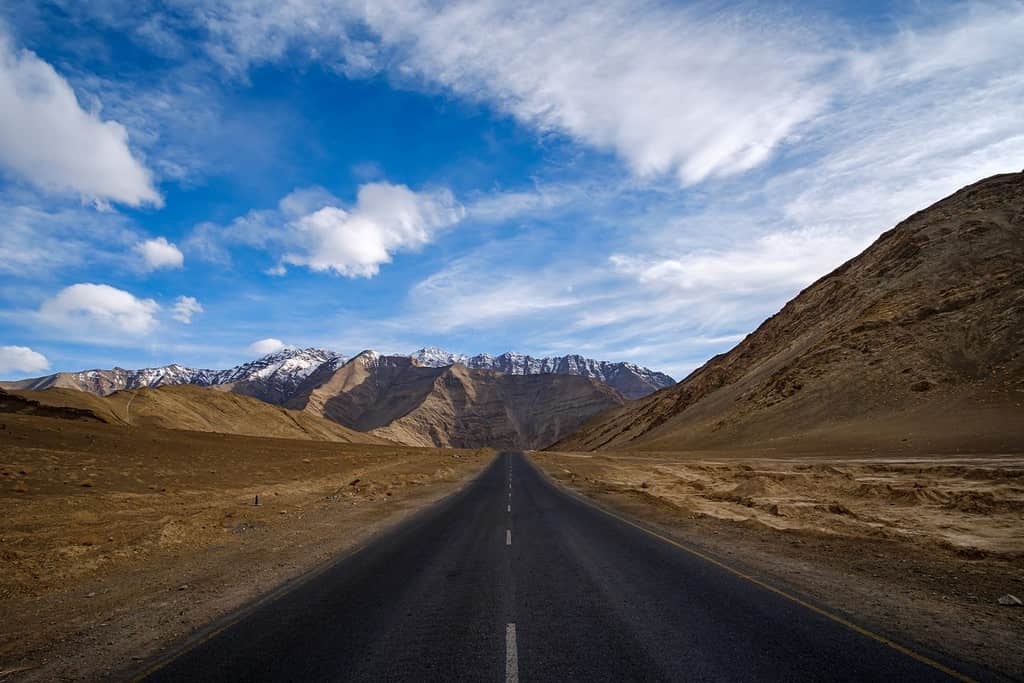In today’s modern age, people tend to believe things they can see with their own eyes. So much so that people often forget that their eyes are just as capable of tricking them as any doctored photo.
The Magnetic Hill in India is a place that has been associated with myths and theories to do with heaven for a long time. While it ended up not being a road that determined if people were to go to heaven or not, it still had a rather interesting story behind it.
To find out what’s so interesting about Magnetic Hill, and why it has become a fairly popular tourist attraction in the area, you’ll have to continue with the article.
About Magnetic Hill

Even without the rather impressive hill, the surrounding area is quite beautiful.
©Rudra Narayan Mitra/Shutterstock.com
Magnetic Hill is a rather famous stretch of road in India. The reason it’s famous is because it pulls objects uphill. The people who once lived in the area had a lot of theories on why the hill worked like that.
Many of the theories had to do with ascending to heaving. It was said that the people who were pure and rightly meant to go to heaven would be pulled in the right direction. Meanwhile, those who were not righteous would be pulled in the other direction.
When people started looking at the hill with a more scientific eye, other theories popped up. For a while, the hill was thought to be magnetic. It was thought that the strong magnetism of the mountain was pulling cars towards the mountain. The theory was so strongly believed that Indian Air Force planes would avoid the mountain to make sure that there wasn’t any interference with their navigation equipment.
However, that theory didn’t quite fit either. Finally, due to other mountains throughout the world that share a similar strangeness, the truth was found. Whatever it is, the force is so strong that it pulls the car at a speed of about 13 miles per hour (20 kilometers per hour).
Where Is Magnetic Hill?
Magnetic Hill is a strip of road located near Leh in Ladakh, India. It’s part of the Leh-Kargil-Srinager National Highway in the Trans-Himalayan region. Though the area looks rather barren, the Sundhu River flows to the east of the road.
It’s a pretty high road as well, standing about 11,000 to 14,000 feet above sea level. The road is a bit out of the way from any other major tourist attractions. However, if you’re a fan of optical illusions, it can be a fun trip.
Before you travel to this spot, you want to make sure that you’re ready. It’s not just a simple drive to the hill and back. It takes quite a toll on those wanting to visit. For one, there aren’t food options nearby. You’ll want to make sure you pack plenty of snacks and water before you start on your drive.
As amazing as this road is, you don’t want to travel to it immediately. Many people suffer from acute mountain sickness, even while safely in their car. It’s recommended to acclimate to the surrounding area first, and then give the road a try. Additionally, it gets incredibly cold in the winter season, so making sure you’re prepared is a must.
Animals Near Magnetic Hill

The black-necked crane is one of the nearby endangered species.
©Perry chang/Shutterstock.com
Though the area around Magnetic Hill isn’t lush, the region it’s in is rich and diverse. There are many species of plants and animals in the area, including a few endemic species.
Throughout the surrounding area, you can find things like snow leopards, red pandas, barking deer, blackbuck, white-throated langurs, and Himalayan tahrs, amongst other animals.
There are even a few endangered species, such as the black-necked crane and red fox.
Because of the diverse wildlife and picturesque views in Ladakh, it’s a popular tourist destination for animal lovers. Some 1,100 medicinal plants also grow naturally in the area, including wild roses and willow.
What Makes Magnetic Hill Interesting?

You can see India’s Magnetic Hill for quite a while before you reach it, as the mountains tower over the surrounding area.
©itonggg/Shutterstock.com
There is something rather interesting about Magnetic Hill in India. It’s a gravity hill. These are also known as magnetic hills, mystery hills, mystery spots, gravity roads, or anti-gravity hills.
These hills are interesting because they seem to defy gravity. Usually, due to a lack of a visible horizon, and sloping trees or mountains, the angle of the path is messed up in your head.
Usually, you’ll feel like you’re going uphill when you’re going down. If you roll a ball or pour some water on the road, it’ll appear to climb uphill, when in reality, it’s rolling downhill. It messes with the brain, even when you know the reason for the illusion.
India makes a good tourist attraction out of their road. If you put your car in neutral and sit on the road in a designated marker, you’ll find that your car rolls in the direction that appears to be uphill. It’s quite fun.
It’s also not the only magnetic hill in the world. There are some in most countries, including the United States.
The photo featured at the top of this post is © anuragjha/Shutterstock.com
Thank you for reading! Have some feedback for us? Contact the AZ Animals editorial team.







